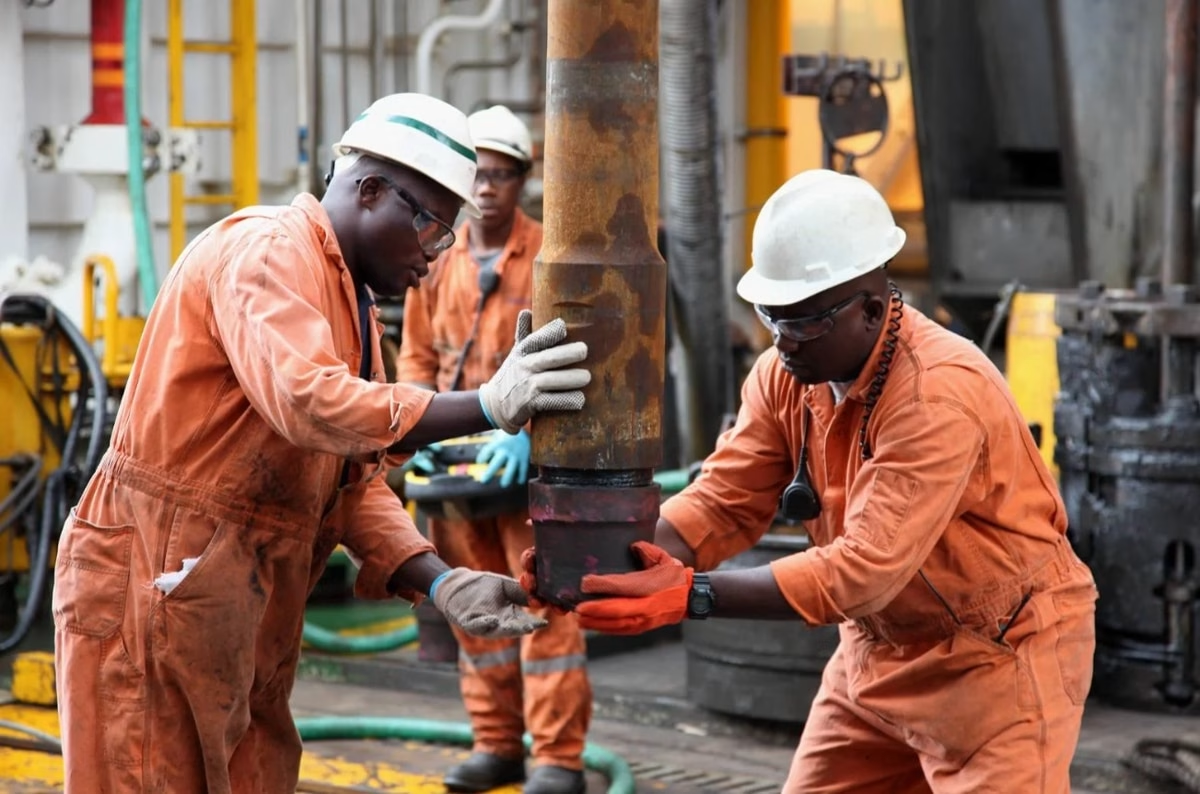Nigeria-TotalEnergies deepwater oil contract has officially taken shape as both parties inked a production-sharing contract (PSC). The multinational entity and the South Atlantic Petroleum are partnering on two offshore blocks in a step to boost exploration and attract investment under its new oil framework. Currently Africa’s largest oil producer is seeking to revitalize its upstream sector amid global energy transition pressures. Furthermore, the country seeks to boost its declining investment in fossil fuels. The deal covers petroleum prospecting licenses 200 and 2001, awarded during the 2024 licensing round.
Moreover, the project spans about 2,000 square kilometers in the Niger Delta Basin. TotalEnergies holds an 80% contractor interest, while Sapetro holds 20%, the upstream oil regulator said on Monday. “This PSC signals the start of a committed work programme that will help us unlock the untapped geological potential of our deep water, expand our reserves, boost production, and strengthen Nigeria’s energy security,” said Gbenga Komolafe, Chief Executive of the Nigerian Upstream Petroleum Regulatory Commission.
Oil prospects in Nigeria are taking shape as the Federal Government plans to commission the Otakikpo Onshore Crude Oil Terminal. unveiling is of monumental significance as it is the first new crude export facility to be built in Nigeria in over 50 years. The facility was developed by Green Energy International Limited, who also operate the Otakikpo field in OML 11. The onshore crude oil terminal is the first wholly indigenous onshore terminal to be built in Nigeria.
The last such facility, the Forcados Terminal, was commissioned in 1971. The inauguration is expected to attract top government officials such as the Minister of State for Petroleum (Oil). It will also have Senator Heineken Lokpobiri, Rivers State Governor, Siminalayi Fubara, and key stakeholders across the oil and gas sector. The terminal aligns with President Tinubu’s drive to boost crude oil production and address Nigeria’s long-standing evacuation challenges.
The Scope of Implementation on the Nigeria-TotalEnergies Deepwater Oil Contract
The scope of implementation on the Nigeria-TotalEnergies deepwater oil contract includes provisions for signature and production bonuses. Furthermore, it entails minimum work guarantees, profit-sharing and compliance with host community development obligations. Furthermore, it outlines environmental safeguards, including decommissioning and remediation funds. Once complete, the project is expected to have an immense significance in improving the country’s standing in the oil industry. It also benefits TotalEnergies as they solidify their stronghold in Africa’s energy sector. This deal comes as the company advances other large-scale initiatives globally, such as the recently launched $13 billion GGIP oil field and seawater supply projects in Iraq, underscoring its strategy to combine resource development with sustainability and infrastructure upgrades.

The contract comes after a recent contract the company signed with Congo Republic giving oil exploration permits. Nigeria is hopeful for more with oil projects such as the massive Dangote Refinery, which is becoming Africa’s largest refinery still in the works. Moreover, the Nigeria LNG expansion will significantly boost the country’s LNG capacity. In the upstream sector, Shell’s deepwater Bonga North project and TotalEnergies’ offshore Ubeta gas field are expected to increase oil and gas output in the coming years.

Leave a Reply